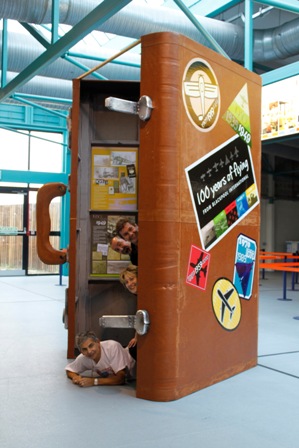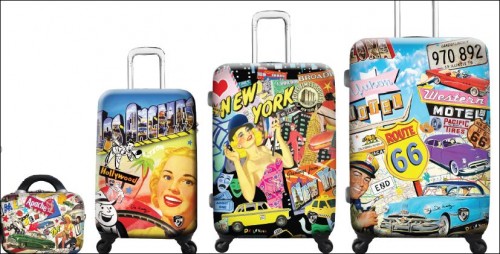
(This is a slightly different version of a story we wrote for NBC News online)
Summer travel may cause some headaches
Memorial Day weekend and a unusual travel season are just around the corner.
Experts expect a summer travel tsunami fueled by a dip in Covid-19 infection rates, rising vaccination rates, and the reopening of attractions, resorts, and other tourist destinations.
AA predicts that 34 million Americans will take road trips 50 miles or more from home during the Memorial Day holiday, May 27-31. That is a 52 percent increase compared to last summer — although still about 9 percent below the pre-pandemic levels in 2019.
More than three-quarters of Americans (77 percent) plan to take trips this summer, according to the latest results of a Harris Poll survey.
But with everyone rushing to go somewhere – anywhere – travelers may find their dream destinations hard to book or sold out already.
“Travelers should be aware that there is still limited supply, as airlines haven’t brought back fleets in full, there are hotels that haven’t opened or are at limited capacity, and car rental fleets are still reduced,” said Kelly Soderlund of travel management company TripActions. She advises travelers determined to hit the road this summer to book as arly as possible to avoid being disappointed by a lack of inventory or by high prices.
Here are some of the summer travel “hiccups” travelers may encounter — and some tips for how to handle them.
High Gas Prices
AAA says motorists will be met with the highest gas prices since 2014.
Gas prices were expected to flirt with $3 per gallon leading up to Memorial Day weekend. But last week’s shutdown of the Colonial Pipeline caused prices to spike weeks ahead of the holiday.
“Americans will still take their road trips,” says AAA spokesperson Jeanette McGee, “They just may not travel as far as originally planned and may spend a little less.”
To save money on gas, make sure your car is tuned up and your tires are properly inflated, join gas station rewards programs, and download one or more gas price apps to your smartphone so you can compare prices on the road.
Crowded planes, high ticket prices
Right now, flights are 77 percent full on average, compared to 85 percent to 90 percent pre-pandemic, said Scott Keyes, founder of Scott’s Cheap Flights. “But hidden under that topline average is the fact that popular leisure flights to places like Hawaii and Florida are regularly seeing completely full planes. With Memorial Day such a popular time to travel, expect airports to be crowded and planes filled to capacity.”
While the dirt-cheap fares airlines floated during the pandemic are long gone, there is some good news for air travelers.
“Two new budget airlines, Avelo and Breeze, will introduce more low-fare seats and increase competition,” said travel industry analyst Henry Harteveldt of Atmosphere Research. In addition, “United Airlines just announced it is adding more domestic flights, and Southwest is adding new flights between the mainland U.S. and Hawaii.”
Long lines at security checkpoints
Passenger volumes continue to rise at airports across the country. In many airports, that means the return of long lines at security checkpoints.
“We are encouraging people to arrive at their airports early, like they were asked to do prior to the pandemic,” TSA spokeswoman Lisa Farbstein said.
Expect longer lines at airports where the TSA is short-staffed and unable to open all checkpoints during the busiest times. Elsewhere, lines may stretch out because passengers who have not flown in the past year have rusty packing skills. In addition to finding a lot of oversize liquid containers in travelers’ carry-on bags, TSA officers are finding that many passengers are still forgetting to leave their firearms at home.
For a refresh on what can be put in carry-on bags, travelers can consult TSA’s “Can I Bring?” feature online and on the MyTSA app or tweet to @AskTSA.
High Hotel Rates
Have your heart set on a beach vacation? So does everyone else. So this summer is an especially good time to seek out hotels in secondary or alternative cities.
For example, Adit Damodaran, an economist at Hopper, a price comparison site, found that while hotels in Southeastern beach destinations, such as Myrtle Beach, South Carolina; Galveston, Texas; and Fort Lauderdale, Florida, are booking up quickly, hotels in Florida towns with similar vibes — like Jacksonville, Tampa, Fort Myers and Daytona Beach — are showing increased availability.
Elusive rental cars
During the pandemic, many car rental companies sold off big chunks of their fleets. Now, many Americans who hope to rent cars for summer road trips are finding cars unavailable or renting at a premium.
To increase your chances of finding a rental car for this summer’s vacation, Priceline and others suggest booking your car at the same time as, or even before, you book your flights, booking a travel bundle that includes a car rental, checking for cars at off-airport locations and exploring services such as Zipcar and peer-to-peer car-sharing programs.
Shifting protocols
This summer, “travelers researching a destination will need to pay attention to how that location is handling Covid protocols and what might be expected of you as a visitor to the community,” said Tori Middelstadt of Oregon’s Willamette Valley Visitors Association.
That includes noting and adhering to the rules about masking. Last week, the Centers for Disease Control and Prevention said fully vaccinated people can forgo wearing masks indoors and travel in the U.S. without getting tested before or after they travel.
But a federal rule not set to expire until Sept. 14 requires that masks be worn when traveling by air, rail, or bus. Cities, states, and individual businesses are still able to set their own rules.
The current unknowns of travel and the pressures around booking that first vacation in over a year understandably make many travelers anxious.
“There are just too many variables in play right now, from the basics, like availability, to the more complicated, like Covid-19 protocols. If you’re thinking about a summer trip, you need to move past the thinking part and swiftly get yourself to the booking process,” said Erika Richter of the American Society of Travel Advisors.
